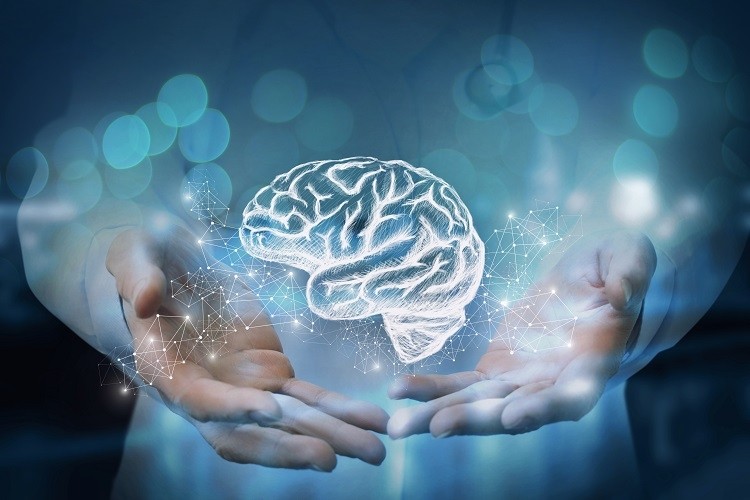URMC launching new brain aging research center

The University of Rochester Medical Center is launching a new center to study the relationship between emotional well-being and dementia-related diseases, such as Alzheimer’s.
Ample research has uncovered links between emotional well-being in older adults and Alzheimer’s disease and related dementias. But little is known about the direction of the relationship.
The Network for Emotional Well-Being (NEW) and Brain Aging is a collaboration between researchers from the UR School of Nursing, the Del Monte Institute for Neuroscience, the Department of Psychiatry, the UR Aging Institute, and their colleagues at other universities across the country. It is one of five networks funded by the National Institutes of Health (NIH) to examine the topic from different angles.
The NEW Brain Aging Center at URMC, established with a four-year, $2.5 million grant from the NIH’s National Institute on Aging, will focus on clarifying two separate mechanistic relationships: the impact of an aging brain on emotional well-being in older adults, and the influence of emotional well-being on brain function and cognitive aging.
“People have been studying aspects of emotional well-being, such as how to be happy or finding a purpose in life, for hundreds of years. But in terms of understanding how emotional well-being is linked to aging and dementia pathologies, this is really new. Nobody has studied it in this way,” said Feng Vankee Lin, PhD, RN, Marie C. Wilson and Joseph C. Wilson Professor in Nursing and associate professor of nursing, neuroscience, psychiatry, neurology, and brain and cognitive sciences, who is the principal investigator on the grant.
“Fully 30 percent of the patients we see in our system, in inpatient and ambulatory settings, are older adults. They are the fastest growing segment of the population and the most frequent consumers of health care,” said Yeates Conwell, MD, professor of psychiatry, who is a lead investigator on the grant. “The UR Aging Institute, now with the addition of NEW Brain Aging, will help meet the challenge of assuring not only the health care needs of our older patients are met, but that the quality of life is optimized, as well.”
The NEW Brain Aging Center will be guided by an eight-member executive committee made up of researchers from four universities (University of Rochester, Duke University, Johns Hopkins University, and the University of California Santa Cruz), headed by Lin, Conwell, and Kuan Hong Wang, PhD, professor of neuroscience, who is also a lead investigator. “We knew we needed to know more about the link between emotional well-being and aging, but the COVID-19 pandemic has put a particular urgency into understanding this relationship,” Wang said. “The pandemic is a stressor particularly threatening to older adults. Some people are already having either mild cognitive impairment or are having Alzheimer’s disease progression. This center will hopefully lead us to a better understanding of the interplay between emotional well-being and aging brain diseases.”
Using behavioral and brain imaging measures in animal models and comparing those findings to humans, researchers will look to match the observable biomarkers in both, ultimately linking those back to the emotional states. “There are technical challenges to this, we must consider the constraints of the evolutionary distance between the different brain systems, and there must be constant dialogue between the human and animal researchers,” Wang said. “But if we do this, it will allow us access to a more subjective aspect of emotional well-being, something that has not been achieved before.”
Alzheimer’s disease and other related dementias affect more than five million people in the U.S. and more than 47 million people worldwide, according to the NIH. There are no known treatments to prevent or stop the progression of dementia, and the toll on individuals, caregivers, and society will continue to increase as the population ages unless effective interventions can be developed.
Previous research has established an association between emotional well-being and select aspects of Alzheimer’s and other forms of dementia, but it’s unclear whether dementia pathologies are a cause, byproduct, or consequence of declines in mental and emotional health.
“Many people don’t realize that older adults on average are more satisfied with their lives than younger people, in spite of the inevitable stressors that aging brings,” said Conwell. “NEW Brain Aging will help us understand the neural mechanisms underlying that resilience and yield insights into how best to help those who are in distress.”
“The objective of the network is to engage a wide range of investigators in collaborative thinking and research in order to build the field,” said Lin. “We want to be the leaders in the study of the neuromechanisms of emotional well-being and accumulate resources, data, and expertise that can then be provided to networks or other individuals interested in further developing this area of research.”
Provided information


